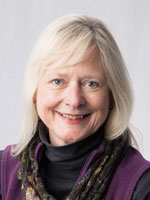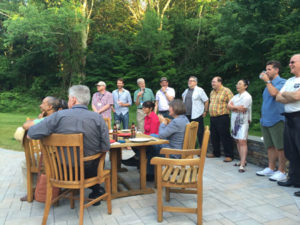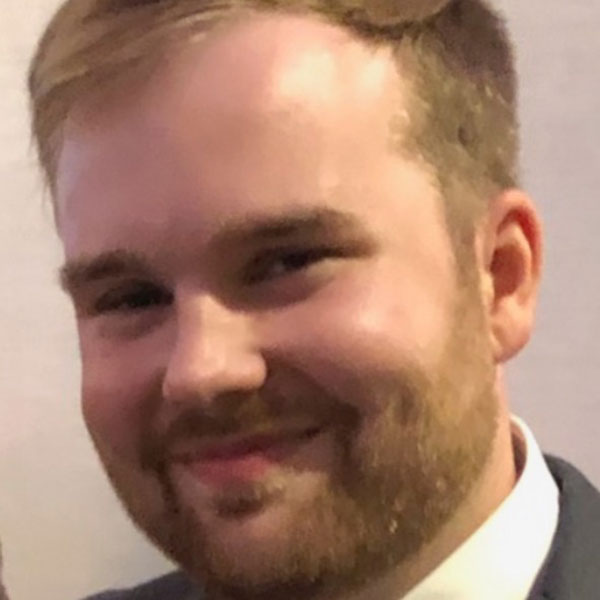Survival in a Time of Disruption in Higher Education
 This is a challenging time to be engaged in scholarship in higher education. Shrinking state budgets and rising tuition raise concerns about the affordability—and importance—of college. Support for scholarly organizations such as the Illinois State Museum are threatened in budget battles (and the update). Skepticism by some members of Congress about the value of social and behavioral sciences threaten research funding at the same time universities are placing increased importance on grantsmanship for promotion and tenure. A cornerstone of education, tenure, is under attack in both K-12 (the Vergara case is rippling across the country) and higher education (Wisconsin anyone?). Fundamental notions of shared governance and academic freedom are under reconsideration with numerous examples of faculty being censored for public statements (be careful what you tweet). Increasingly our status as individual scholars and collective departments is measured and benchmarked by external organizations such as Academic Analytics using criteria we may not even be aware of—or value.
This is a challenging time to be engaged in scholarship in higher education. Shrinking state budgets and rising tuition raise concerns about the affordability—and importance—of college. Support for scholarly organizations such as the Illinois State Museum are threatened in budget battles (and the update). Skepticism by some members of Congress about the value of social and behavioral sciences threaten research funding at the same time universities are placing increased importance on grantsmanship for promotion and tenure. A cornerstone of education, tenure, is under attack in both K-12 (the Vergara case is rippling across the country) and higher education (Wisconsin anyone?). Fundamental notions of shared governance and academic freedom are under reconsideration with numerous examples of faculty being censored for public statements (be careful what you tweet). Increasingly our status as individual scholars and collective departments is measured and benchmarked by external organizations such as Academic Analytics using criteria we may not even be aware of—or value.
This plays out in geography departments in various ways. While this is an exciting time to be a geographer it is also a very challenging time. I have learned recently that upper-level university administrators are concerned about the low number of first-time-in-college students who declare geography as a major. Even departments that eventually graduate a significant number of students are under pressure to justify their existence because of this concern. And in some instances, environmental studies/science (and other) programs compete with geography for majors. Although geography has always been a “discovery” major, it is clear we need to demonstrate continuously and forcefully the many advantages of maintaining strong geography departments even as we develop new systems of recruiting and strong identities to attract students.

I invite you to share other concerns and issues with me so that together we can begin working toward solutions. This is exactly the approach we took at the Department Leadership Workshop (DLW), an initiative of the Healthy Departments Committee, held at the University of Connecticut July 24-27, 2015. The Healthy Departments Committee*, chaired by Alec Murphy, has been a consistent and strong force promoting strong management and fresh thinking about geography since its inception more than a decade ago. It works with departments, ably assisted by Doug Richardson and Meridian staff as needed, to suggest external reviewers for departments, to marshal letters of support if requested, to advise department heads on specific issues, and to generally monitor the state of departments across the United States. The list of current members appears at the end of this column; thanks to each and every one of you.
The committee also sponsors a yearly workshop for leaders in geography. Note that this is not just for department heads or chairs, but for everyone interested in improving their programs in any way. The last few years the workshops have been held in association with the very successful Graduate Faculty Development Alliance (GFDA) sessions led by Ken Foote and JW Harrington and assisted this year by Derek Alderman, Rina Ghose, Francis Koti, Michael Solem, and George Thompson. GFDA is a week-long enterprise; the DLW joins it for the last three days. Mixing early career and advanced doctoral students with senior department leaders is a brilliant idea— mentoring on steroids, with many opportunities for both formal and informal exchanges, networking, war stories, sharing of perspectives, and exchange of advice.

The DLW has a different theme each year; last summer focused on social media. This summer, I chose to focus on Survival in a Time of Disruption in Higher Education. Participants set the agenda by selecting the specific topics for sessions from a menu and volunteered to lead discussions or present in panels. Among other topics, we discussed recruiting and retaining students and majors; building strong departments through fundraising, nurturing alumni, and entrepreneurship; budgets, blended departments, and strategic planning; and improving support for mid- and late-career faculty. Perhaps most useful were open discussions when the group brainstormed solutions to problems. Workshop evaluations indicate that participants (see the list below) found the sessions useful.
As I organized the agenda for the workshop eight actions emerged as key to healthy geography departments: teach, promote, build, innovate, nurture, manage, reflect, and envision. Departments must have a clear (and shared) vision of what and who they are and be prepared to work to build toward that vision. This may require innovation, a euphemism for change, something that is never easy. Departments need leaders who manage effectively and who are willing to nurture their colleagues, enabling them to succeed across different stages of their careers. Healthy geography departments care about teaching, learning, and the lives of the students they touch. Finally, healthy departments take the time to reflect, to assess, plan, and refocus as needed, together. It’s hard work but important to every department in every institution and thus, to the discipline.
I intend to make building healthy departments and thriving, not just surviving, in this time of disruption a theme for my year as president. I will explore the eight actions mentioned above in future columns and hope to develop them as strands at the annual conference and in next summer’s DLW workshop.
Speaking of next summer, this is my opportunity to say thank you to Ken Foote and JW Harrington for running GFDA for the last 14 years. From Boulder to Storrs, Ken and JW have done yeoman work to build a strong future among geography’s early career faculty. Their service to the discipline deserves our recognition and more than just a simple thank you. If you benefited from GFDA, be sure to send your thoughts and appreciation to them. A second note of thanks goes to Derek Alderman and the University of Tennessee who will carry on the tradition of GFDA and DLW beginning next year.
As always, I invite your thoughts.
——————————
* Healthy Departments Committee: Alexander Murphy, Sarah Witham Bednarz, Perry Carter, Ken Foote, Jonathan Harbor, JW Harrington, Darrel Hess, Burrell Montz, William Moseley, Doug Richardson, Michael Solem, Joseph Wood, and Jenny Zorn.
Participants, 2015 Department Leadership Workshop: John Bowen, Central Washington University; Lesley-Ann Dupigny-Giroux, University of Vermont; John Hasse, Rowan University; Steven Holloway, University of Georgia; Del Levia, University of Delaware; Wei Li, Arizona State University; Jo-Beth Mullens, Keene State College; Rick Sambrook, Eastern Michigan University; Nat Trumbull, University of Connecticut; Steven Tufts, York University.

